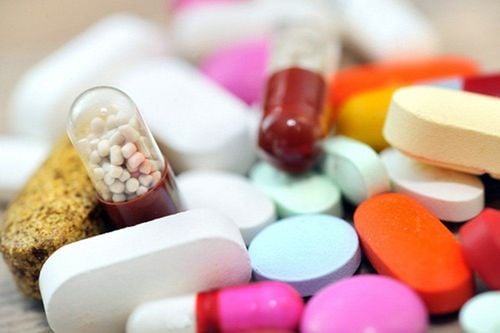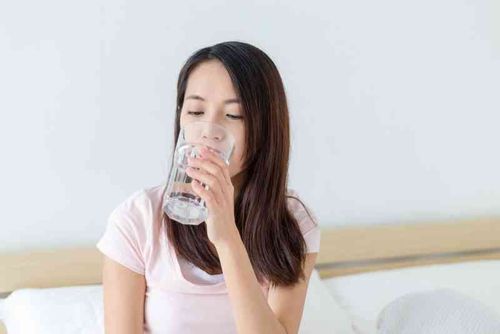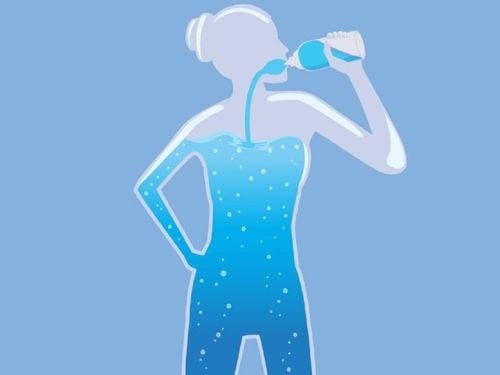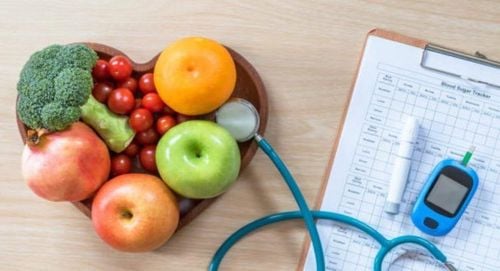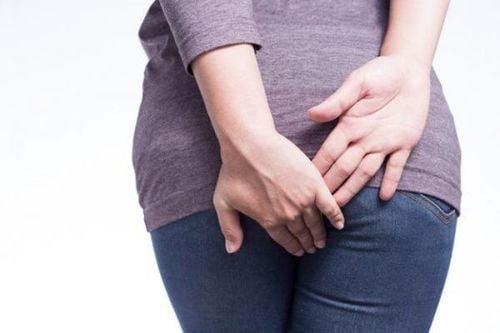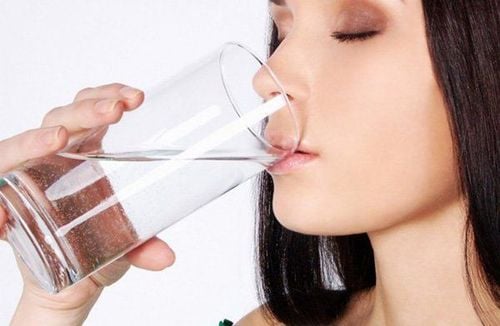With diabetes, you must manage what you eat and drink. You need to know the amount of carbohydrates you should consume and how they can affect your blood sugar. The right beverages can not only help you avoid side effects but also help you manage your symptoms and maintain a healthy weight.
1. Basic notes when choosing drinks
The American Diabetes Association (ADA) recommends zero- or low-calorie drinks as they prevent blood sugar spikes. Therefore, zero- or low-calorie drinks are the best option. You can squeeze some fresh lemon or lime juice into your drink for flavor and a refreshing effect. Remember to properly consume low-sugar beverages, such as vegetable juices. Low-fat milk is also a nutritious option, but the downside is that it contains lactose. You should also consider your daily carbohydrate limit. Dairy products are not considered low-sugar beverages.
2. 5 best drinks
Whatever location or setting you are in, here are the most diabetes-friendly beverage options.
2.1 Water
For hydration, water is the best choice for diabetics because it won't spike your blood sugar.
Once the body has absorbed enough water, it can flush excess glucose in urine. The Institute of Medicine recommends that men drink 13 cups, or 3.08 liters, per day. Women should drink 9 cups, or 2.13 liters, per day.
If water doesn't appeal to you, try this. Add slices of lemon or orange. Or, add a sprig of flavorful herbs, like mint, basil, or perilla, or mashed. A few fresh or frozen raspberries to your drink.

2.2 Tea
Research shows that green tea is good for overall health. It can lower blood pressure and LDL cholesterol.
Some studies suggest that drinking 6 cups, or 1.42 l per day, can reduce the risk of type 2 diabetes. However, researchers need to conduct more studies to verify this claim.
Whether you choose green tea, black tea, or herbal tea, you should avoid teas with added sugar. For a nutty flavor, make your own iced tea using a chilled aromatic tea like rooibos and add a few slices of lemon. If you don't mind caffeine, Earl Gray and jasmine green tea are also great options for you.
2.3. The coffee
A 2012 study suggested that drinking coffee may help reduce the risk of developing type 2 diabetes. Researchers found that the risk was lower for those who drank 2 to 3 cups per day. People who drank 4 or more cups saw the same effect. This effect occurs in both caffeinated and decaf coffee. If caffeine makes you feel jittery, opt for decaf coffee instead.
Like with tea, your coffee mustn't have added sugar. Coffee with milk, cream, and sugar will raise the total calories and may affect blood sugar. Many calorie-free or low-calorie sweeteners are available. You can choose to use them.
2.4. Vegetable juice
While most 100% fruit juices are high in sugar, you can opt for tomato or vegetable juices instead. Mix leafy greens, celery, or cucumber with a few berries. This gives you all the vitamins and minerals you need.
2.5. Low-fat milk
Consider adding dairy to your diet. It has important vitamins and minerals, as well as carbohydrates. Always remember to choose unsweetened, low-fat, or skim milk.
You should limit yourself to two to three drinks per day. You can also try other options such as extra nuts or coconut milk. Note that soy and rice milk have carbohydrates, so check the label on the package before buying and consuming them. Also, be aware that many milk alternatives lack vitamin D and calcium unless fortified. Some nut milks contain very little protein. Consider adding dairy to your diet. It has important vitamins and minerals, as well as carbohydrates. Always remember to choose unsweetened, low-fat, or skim milk.
You should limit yourself to two to three drinks per day. You can also try other options such as extra nuts or coconut milk. Note that soy and rice milk have carbohydrates, so check the label on the package before buying and consuming them. Also, be aware that many milk alternatives lack vitamin D and calcium unless fortified. Some nut milks contain very little protein.
3. 3 worst drinks
Avoid sugary drinks whenever possible because not only can they raise blood sugar levels, but they can also contribute many calories to the recommended daily calorie intake.
3.1 Regular soda
Soda occupies the top spot on the list of drinks to avoid. On average, a can of soda has 40 grams of carbohydrates and 150 calories.
Experts have linked these sugar drinks to weight gain and tooth decay, so it's best to put them on store shelves. Instead, drink water or unsweetened fruit tea.
3.2 Energy drink
Energy drinks can be high in caffeine and carbohydrates. Research shows that energy drinks not only raise blood sugar but also cause insulin resistance. This can increase your risk of type 2 diabetes.
Too much caffeine can cause anxiety and high blood pressure which leads to insomnia. All these can affect your overall health.
3.3 Fruit juices with sugar or without sugar
While 100% juice is fine, all juices can add large amounts of carbohydrates - pure (natural) sugars - to your diet. This combination can may cause your blood sugar and raise weight gain risk.
Fruit or punch-flavored drinks can contain as much sugar as a full-calorie soda. If you have a steady juice craving, make sure you choose a juice that's 100% pure and doesn't contain added sugar.
Alternatively, limit your servings to 4 ounces (0.12 l). This will cut your sugar intake to just 3.6 teaspoons (15 grams). Instead, try adding one or two of your favorite juices to your carbonated water.
4. 2 cautious drinks
4.1. Diet soda
A 2014 study in rats found that synthetic sweeteners, such as those found in diet sodas, could harm gut bacteria. Some studies have hypothesized that this may increase insulin resistance, worsening diabetes. A 2015 study in mice showed that gut bacteria can respond to sugar substitutes. Each animal species may respond differently. So further studies are needed as most studies to date have used rats, and some use humans.
A 2009 study linked higher diet soda use to a greater risk of metabolic syndrome. This syndrome refers to a group of conditions including high blood pressure, cholesterol, triglycerides, weight gain, and high blood sugar.
A 2016 study found that diet soda drinkers had higher blood sugar and bigger waist circumference. However, this study did not consider meals, physical activities, or other variables before each test. Furthermore, the authors say that those with higher insulin levels at the start may have had metabolic issues unrelated to their drinking of sugar-free soft drinks. For most people living with diabetes, sugar-free soft drinks are moderately safe.
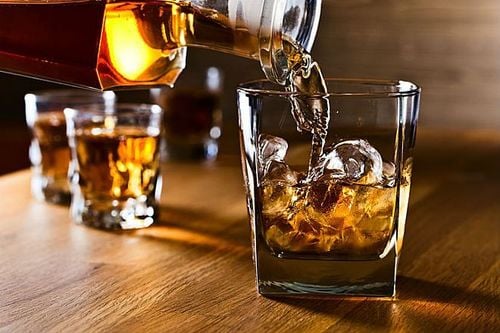
4.2. Alcoholic drink
If you have high blood pressure or diabetic nerve damage, drinking alcohol can worsen them. Therefore, check with your doctor to identify if it is safe to drink alcohol.
Alcohol can lower blood sugar for the next few hours after drinking. This is crucial for those who take insulin or other drugs that can cause low blood sugar. Some distilled liquors are often mixed with sugary soft drinks or juices, which can raise blood sugar levels.
A 2012 study found that men who drink alcoholic beverages have an increased risk of type 2 diabetes. For women, the risk depends on the level of consumption.
Heavy drinking increases the risk of prediabetes and type 2 diabetes, while moderate drinking can lower the risk of type 2 diabetes. Some studies suggest red wine may help with diabetes, but the evidence is uncertain. If you drink alcohol, red wine may be a good choice as it has some antioxidants and is lower in carbs. Sweet wines have more sugar. Moderate red wine, as part of a healthy diet, does not cause weight gain. It does not harm people with type 2 diabetes by metabolic effects. The guidelines say people with diabetes should limit their intake to 1 drink or less per day for women and 2 or fewer for men. For other drinks, it's 5 ounces (0.15 l) of wine, 1 1/2 ounces (0.04 l) of distilled liquors, or a 12-ounce pint of beer. However, more research is needed on the potential relationship between diabetes risk and alcohol use.
Once you have diabetes, be careful to choose simple drinks. Choose water whenever possible or unsweetened tea and other unsweetened beverages. They are good options. You should consume natural juices and skim milk properly.
If you crave a little sweetness in your drink, try adding some natural sources, such as aromatic herbs, citrus fruit slices, and a few crushed berries.
Please dial HOTLINE for more information or register for an appointment HERE. Download MyVinmec app to make appointments faster and to manage your bookings easily.
Reference source: healthline.com



